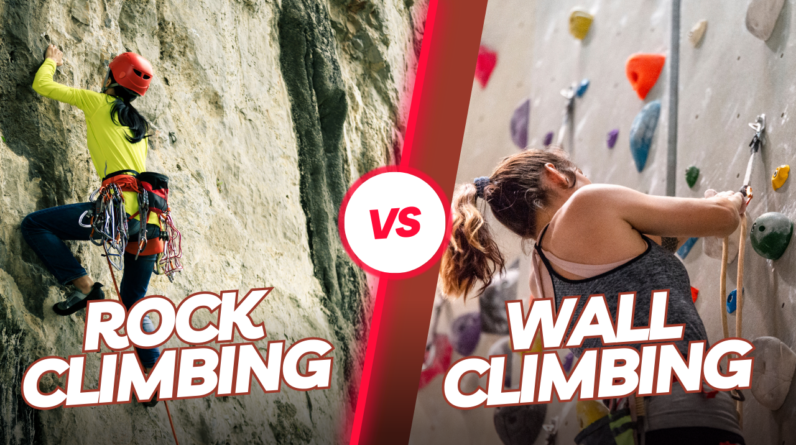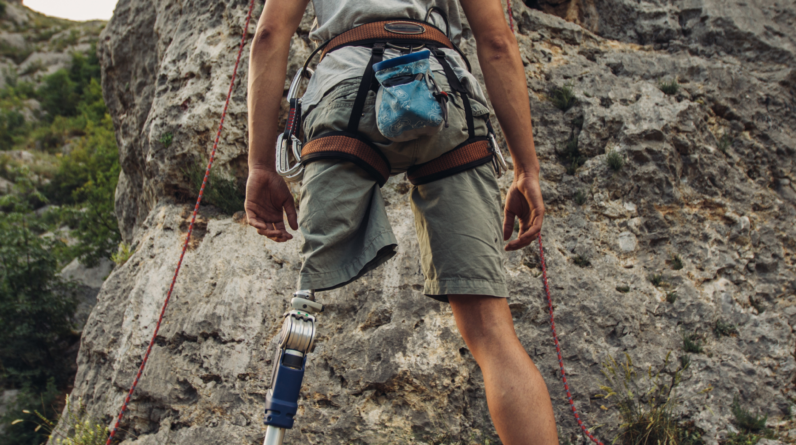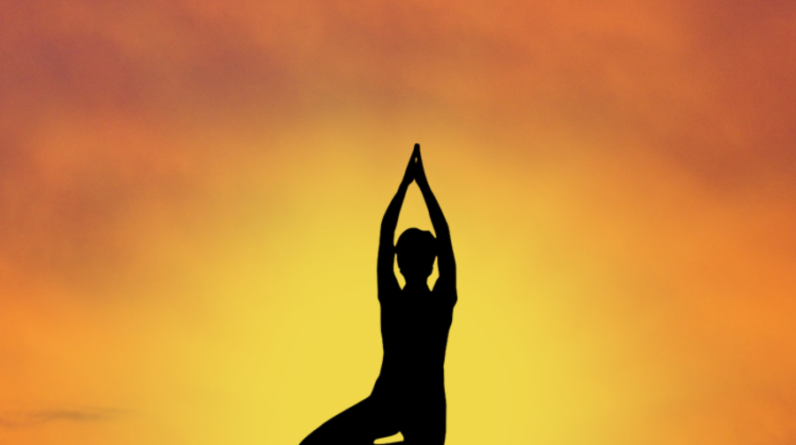
The Benefits of Rock Climbing Physical and Mental Health
Are you considering starting an exercise regimen? Rock climbing is a perfect choice. Not only will it give you a great physical workout, but it also benefits your mental health in numerous ways.
Rock climbing is an intense workout that tests strength, endurance, and focus. It can be an excellent way to enhance concentration while increasing confidence levels.
Physical
Climbing is an ideal way to get a total-body workout, according to Pete Rohleder, a kinesiologist at Georgia State University. Additionally, it requires isometric holds – in which muscles contract but doesn’t change length – which provide added benefits for climbers.
Exercise with weights is an excellent core-strengthening activity that strengthens your lower body, helping prevent back issues. Furthermore, it improves balance – especially on more challenging walls where feet must work harder to push you upward.
Rock climbing is an intense physical activity that demands your full focus, making it a great way to reduce stress. Additionally, it triggers the release of norepinephrine–a chemical that regulates our stress levels and may help alleviate symptoms associated with anxiety or depression.
If you’re struggling with low self-confidence, climbing can be a great confidence builder. It’s an active social sport that requires teamwork and requires constant communication with your partner. Climbing offers both mental and physical challenges that will test both of you!
Climbers’ hands are of paramount importance in the sport, needing to grip tiny footholds with incredible strength and control. This ability must be developed over time, however, it’s not easy to perfect.
Focusing for extended periods of time can be an immense mental advantage. You must pay attention to your path, where you’re going next, and how to keep yourself from getting off track if a mistake occurs. Focusing is key!
Exercise can help improve concentration and focus, as you have to think carefully about each action you take. Be careful not to move too quickly or use your hands or fingers incorrectly; otherwise, you could end up falling off the wall if not paying attention.
Climbing has numerous other advantages, such as increased flexibility and coordination. It may even improve your mobility – something especially crucial as you age.
Climbing can be an incredibly rewarding activity and an uplifting experience, which is why so many people continue to climb. Whether you’re just starting out or an expert climber, climbing provides you with a strong community of like-minded climbers who will encourage and support you along the way.
Mental
Climbing is an enjoyable exercise enjoyed by people of all ages and fitness levels. Not only does it have physical advantages like increased strength and stamina, but it also has mental health advantages which may help keep you mentally sharp.
Rock climbing can enhance your concentration and focus. Being aware of every part of the route as you move can be challenging, but practicing concentration regularly will make it easier to stay focused.
Climbers also learn patience through repetition; this is an invaluable skill to have in life as it allows you to wait patiently for things to unfold instead of getting impatient or frustrated.
Another excellent advantage of rock climbing is how it boosts self-esteem and confidence.
Finally, indoor bouldering can be an effective form of therapy for those suffering from depression or anxiety. Indeed, one study revealed that indoor bouldering significantly reduced depression symptoms among many participants.
Rock climbing presents you with unique cognitive challenges that require you to think differently than other activities, which is an excellent opportunity to form new brain connections. Additionally, this process helps develop spatial awareness, problem-solving abilities, and decision-making abilities.
Climbing is an invaluable skill that can boost mental strength and clarity, which will serve you throughout life. A recent study has even discovered that regular climbing can increase working memory capacity – useful for everyday tasks.
Climbing is an ideal activity for those with autism and other disabilities, as it improves sensory perception, hand-eye coordination, balance, and problem-solving abilities. Furthermore, climbing provides a social outlet to those who may not have access to other forms of exercise like gym memberships or outdoor adventures.
Social

Rock climbing not only provides an outdoor activity, but it’s also a great social outlet. You’ll meet like-minded individuals and be challenged to new heights of strength. It could make for a relaxing midweek release from life’s stresses, as well as being fun for families too!
Recent research has demonstrated that rock climbing can help combat symptoms of depression and anxiety, as well as improve your mood overall. It’s an exercise form that releases dopamine, serotonin, and norepinephrine which have beneficial effects on one’s emotions.
Liberatore notes that climbing can provide a mental challenge and keep you focused, especially for those suffering from ADHD or ADD.
Climbing requires precision eye-hand coordination, balance, and stamina to navigate various hands and footholds on a wall. Learning the ropes may seem intimidating at first, but with patience and guidance from an experienced guide you can develop these essential skills.
Climbing may be seen as a sport for men, but it’s actually one of the best physical activities available to women. Climbing provides an achievement-based discipline and helps build self-esteem.
Climbing is a great activity for the whole family, and there are programs tailored to different age groups. Some gyms even offer kids’ climbing classes or indoor climbing walls for those who can’t make it outdoors. Climbing has many benefits that make it ideal for everyone – including strengthening bonding between family members.
Climbing can be found around the world, from Greece and Thailand to Egypt and Japan. It’s a popular activity for groups of friends or corporates as it promotes team bonding and provides an enjoyable activity together.
Many climbers are highly supportive of one another and often teach new climbing methods to one another. This fosters a sense of belonging and can boost their confidence when faced with new challenges.
Rock climbing not only builds self-confidence, but it can also strengthen your immune system and promote heart health. It is a total body exercise that builds strength from head to toe – essential for overall well-being.
Emotional
Climbing is an activity that has the potential to enhance all aspects of your life. From physical health and mental clarity to emotional balance and well-being, climbing can help you reach the best version of yourself.
Exercise requires your full attention and concentration, freeing your mind from distractions so you can focus solely on the present moment, helping you to feel calmer and more relaxed.
Rock climbing is an invaluable skill in today’s busy world, where time demands and mental fatigue are increasing. Rock climbing provides a chance to unwind, focus and concentrate on what needs doing; which can be hugely beneficial for mental well-being.
Another way rock climbing benefits your mental and emotional well-being is by instilling a sense of mastery in your life. Achieving goals and striving to perfect skills can give you direction in life and fill you with the assurance that anything you put your mind to can be successful.
Climbing can also boost self-efficacy and resilience in the face of failure. This is especially true in gyms where you are given the freedom to solve problems differently until you find a solution.
Climbing requires problem-solving, an invaluable skill that can be transferred to other aspects of life such as work or school. Indeed, many therapists recommend climbing as part of their treatment for depression or other forms of anxiety and PTSD.
Climbing has many positive benefits, one of which is that it acts as a great stress buster by stimulating norepinephrine production – known as the ‘feel good chemical’ which helps manage stress levels. Climbing can provide an immense mental boost and provide strength during times of hardship in life.
Climbing is also an excellent way to explore nature and get in touch with yourself, which has a powerful calming effect that can reduce feelings of stress or anxiety. For those living in cities or bustling places where it may feel like the outside world is too loud and overwhelming, climbing can provide a much-needed respite from stress and anxiety.






